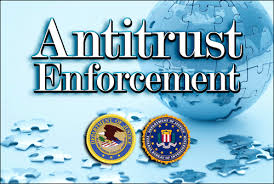The Antitrust Leniency Model and FCPA Enforcement
 I am always wary of simplistic policy proposals – often the simple idea to apply one policy to another subject matter, just does not work. Instead, policy debate will turn to the simple idea and how it can easily be applied in other circumstances.
I am always wary of simplistic policy proposals – often the simple idea to apply one policy to another subject matter, just does not work. Instead, policy debate will turn to the simple idea and how it can easily be applied in other circumstances.
Not to get too cute, but the inquiry requires deciding on which idiom to apply:
Is this a situation where:
“If the shoe fits, wear it.”
OR
“If the glove doesn’t fit, you must acquit.”
I know this took a while to set up the analogy but bear with me. Some have argued that the Antitrust Division’s Criminal Leniency Program for cartel enforcement should be applied to the prosecution of corporations for FCPA violations.
Here is how the policy argument is made:
First, the Antitrust Leniency program provides a pass or immunity to the first company to report on its participation and other companies involved in an illegal cartel. After the first company, succeeding companies that report on their own participation in a criminal cartel receive discounts in declining amounts. As an added carrot, companies that self-report their cartel activity receive a benefit in civil litigation – damages are de-trebled to single claims in contrast to non-rewarded companies who have to pay trebled damages to consumers and businesses that suffer harm from the cartel.
DOJ’s Antitrust Leniency Program has been a success. Since its inception in the 1990s, the Antitrust Division has built a robust criminal enforcement program, rewarding companies who self-report on cartel activity. Like bribery, cartel activity is carried out in secret and with minimal participation of company executives and officials. The incentive to self-report can often lead to the uncovering of significant cartels, resulting in significant consumer benefits.
Second, policy proponents have argued that the same considerations of secrecy and incentives apply to the world of foreign bribery. But there is one big question – since corporate bribery almost always involves conduct by a single corporation, who is the company going to cooperate against?
This is where the Yates Memorandum and the Justice Department may be inclined to make an explicit trade off. If the company is able to provide the Justice Department with evidence needed to prosecute individuals at the company who were responsible for the bribery – actively and by failure to act – would it be in the public interest to reduce or even give the self-reporting company immunity or a pass?
Before the Yates Memorandum and the increased focus on individual liability, I would have argued that DOJ will never adopt the antitrust model for FCPA purposes. Should DOJ and policy advocates reexamine this issue?
At the heart of the issue is what is most effective deterrent? No one can dispute that big fines fall largely on the shoulders of shareholders. However, there may be serious reputational harm from large fines to a company. Whether that is an adequate reason to deter bribery is unclear.
 On the other hand, assuming individuals are aggressively prosecuted, including senior executives who may be responsible for violations by turning a blind eye, one can make a good argument that sending individuals to jail could be a significant deterrent.
On the other hand, assuming individuals are aggressively prosecuted, including senior executives who may be responsible for violations by turning a blind eye, one can make a good argument that sending individuals to jail could be a significant deterrent.
DOJ appears to be stuck in the midst of finding a new balance between corporate and individual prosecutions. We do not now what changed to launch this inquiry, except for personnel changes at DOJ. You can bet there is an active debate going on inside DOJ on how to balance these concerns, along with awarding appropriate credit and incentives for companies to implement effective compliance programs.
To return to the analogy at the beginning of this posting, it is hard to make a case for application of the antitrust leniency model to FCPA prosecutions but the answer may lie somewhere in between the two extremes, with greater incentives for corporate compliance and self-reporting, and increased focus on individual actors responsible for corporate bribery schemes.















